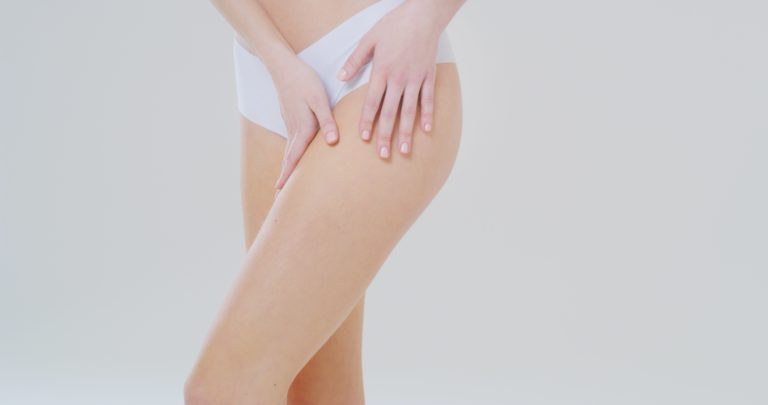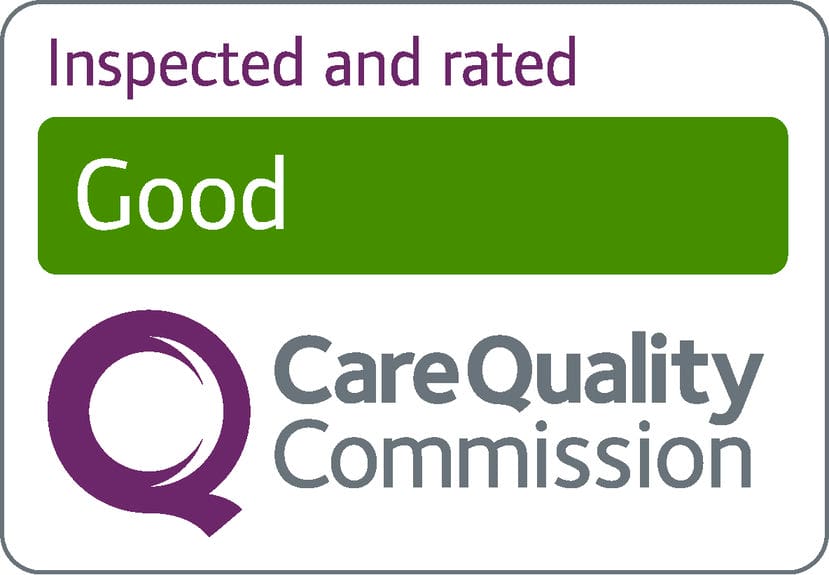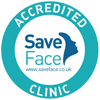Stretch marks can happen to anyone, not just women who have been pregnant. They happen when the skin is stretched as a result of a period of intense growth – such as during pregnancy or puberty – and the skin is unable to return to its usual form afterwards, producing the narrow strips called striae.
The most common areas that are affected by stretch marks are the stomach as well as hips, breasts and thighs. Anyone trying to increase muscle quickly by doing weight training can also find stretch marks on their arms, thighs, chest and back.
Stretch marks do not pose a health risk, and most will fade over time anyway, although this process can take many years. While there are many DIY treatments and products available, they are less effective than clinical treatments that can reduce the appearance of striae more successfully, improving the colour of the marks and helping the body to replace damaged cells with new healthy ones.
How are stretch marks created?
The skin is formed of three layers – the epidermis (top layer), underneath which is the dermis, then the hypodermis, which is where the fat, connective tissue, blood vessels, sweat glands and hair follicles are. When there is rapid expansion of the skin, the dermis is stretched too far too quickly, and it tears, causing the stretch marks’ ripped appearance.
They occur because of rapid growth, which includes weight gain, puberty, and pregnancy, as well as some medical conditions, and the prolonged use of corticosteroid creams which results in decreased collagen levels.
While stretch marks do eventually fade, they are usually red, blue or purple when they first appear; this is the superficial blood supply that you’re seeing. The colour fades as the skin starts to thicken up and have some element of repair which makes them look silver/white.
Can stretch marks be prevented?
Unfortunately, there’s very little you can do to prevent stretch marks. They are an almost inevitable outcome of pregnancy and teenage growth spurts, and some people are predisposed to get them.
If you are pregnant or are about to begin intensive weight training, you can take measures to try and improve your skin’s elasticity which may prevent stretch marks or at least limit the amount and severity. A good skincare regime will help, as well as using creams with peptides to stimulate the collagen. Rosehip oil is a natural alternative which is safe to use during pregnancy.
What treatments are available for stretch marks?
Terproline® cream, which is only available from accredited skin clinics, can help reduce the stretch marks – it can also be used to try and prevent stretch marks, as well as improve the skin’s overall tightness and tone. There are also a number of treatments which can help reduce the appearance of stretch marks and help repair the damaged skin.
Regenlite is a pulse dye laser treatment that works by stimulating the body into producing new collagen which helps to reduce the depth of the stretch marks. In the early stages of stretch marks, it can also help reduce the redness most commonly associated with it.
An alternative laser treatment is Fraxel Dual, which targets the damaged dermis, encouraging your body to replace damaged cells with healthy new ones, leaving your skin looking smoother and the stretch marks faded.
We also treat stretch marks with Derma FNS, a micro-needling treatment which stimulates the production of collagen, hyaluronic acid and elastin which help the body smooth and soften the skin and reduce the appearance of stretch marks.
Derma FNS and Fraxel Dual can also be used together with Platelet Rich Plasma (PRP) treatments. PRP uses your own blood which is passed through a centrifuge to separate the platelets, which are injected back into your skin. The platelets encourage the release of growth factors in the skin, promoting natural regeneration resulting in smoother, healthier skin, and an improvement in stretch marks.
Disclaimer: This blog is not to be used for diagnostic purposes. We are all unique which means that our results, recovery and suitability for any type of treatment will vary. Always seek the advice of a professional should you have any health or cosmetic concerns or to discuss treatments specifically for you.





